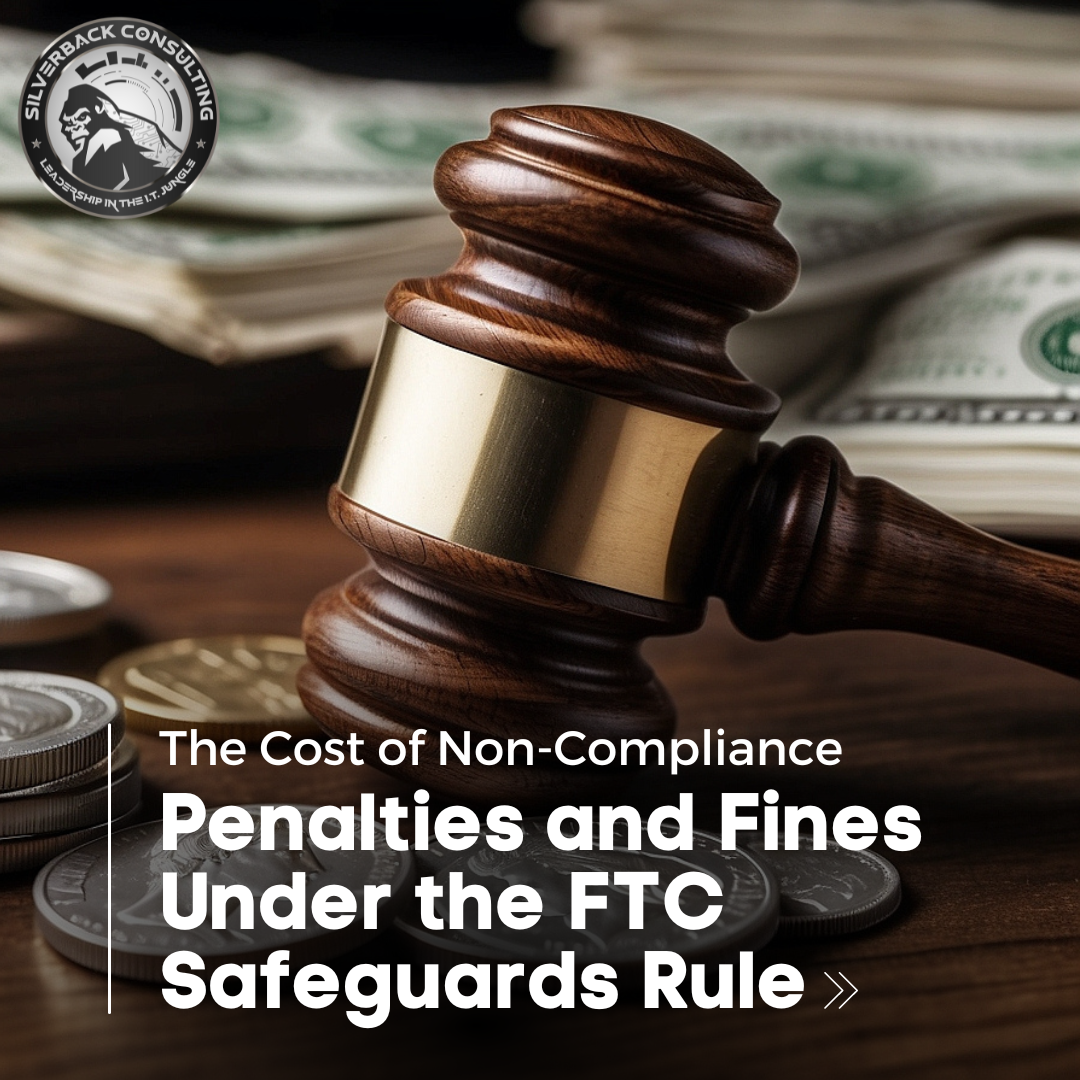Introduction
Protecting consumer information is critical, and the cost of non-compliance with the FTC Safeguards Rule can be devastating for businesses facing data breaches and cyber threats.
The Federal Trade Commission (FTC) Safeguards Rule is a crucial regulation designed to ensure that companies take necessary steps to safeguard sensitive customer data. But what happens if a business fails to comply with this rule?
The consequences can be severe, ranging from hefty fines to legal troubles.
This article delves into the penalties and fines under the FTC Safeguards Rule, highlighting the potential costs of non-compliance and why adhering to these regulations is essential for businesses.

What is the FTC Safeguards Rule?
The FTC Safeguards Rule is part of the Gramm-Leach-Bliley Act (GLBA), which mandates that financial institutions protect customer information.
This rule requires companies to develop, implement, and maintain a comprehensive information security program that includes administrative, technical, and physical safeguards.
The goal is to ensure the confidentiality and integrity of customer data, preventing unauthorized access and protecting against threats or hazards.
Importance of Compliance
Why should businesses care about compliance with the FTC Safeguards Rule Checklist?
In simple terms, non-compliance can lead to significant financial losses and damage to a company’s reputation.
The rule not only protects consumers but also ensures that businesses remain competitive in a market increasingly concerned with data security.
In today’s digital world, where data breaches can cause catastrophic damage, adhering to these regulations is not just a legal obligation—it’s a business necessity.
Overview of Penalties and Fines
Penalties and fines under the FTC Safeguards Rule can vary depending on the severity of the non-compliance and the company’s response.
The FTC has the authority to take enforcement action against businesses that fail to comply, which can include civil penalties, monetary fines, and even injunctive relief.
But what exactly do these terms mean, and how do they impact businesses?
Financial Penalties: How Much Can It Cost?
The Penalties and Fines Under the FTC Safeguards Rule can be devastating.
The FTC can impose fines up to $100,000 for each violation by a company and up to $10,000 per violation for individuals, including corporate officers.
These fines can quickly add up, especially if a company has numerous violations.
Additionally, businesses may face restitution payments to affected consumers, legal fees, and the cost of implementing corrective measures.
Legal Repercussions: Beyond the Fines
While financial penalties are significant, the legal repercussions of non-compliance can be even more daunting.
Companies may face lawsuits from affected consumers, state attorneys general, or other entities. These legal battles can be lengthy and costly, draining resources and diverting attention from the company’s core operations.
Moreover, a court may issue an injunction requiring the company to take specific actions to prevent further violations, which can involve extensive changes to business practices.

The Impact on Business Reputation
In the digital age, a company’s reputation is one of its most valuable assets.
A data breach or failure to comply with data protection regulations can severely damage a company’s reputation, leading to loss of customer trust and loyalty.
The negative publicity from such incidents can have long-lasting effects, making it challenging for a business to recover.
Customers are increasingly aware of data privacy issues, and they expect companies to protect their personal information.
Non-compliance with the FTC Safeguards Rule can signal to customers that a business is not trustworthy, leading to a loss of market share.
Case Studies: Real-World Examples of Non-Compliance
Several companies have faced significant consequences for failing to comply with the FTC Safeguards Rule.
For instance, in 2019, a company was fined millions of dollars for not properly securing consumer data, leading to a massive data breach.
The incident not only resulted in financial penalties but also damaged the company’s reputation and led to a loss of customer trust.
These real-world examples serve as a cautionary tale for businesses, highlighting the importance of compliance.
Steps to Ensure Compliance
So, how can businesses avoid the penalties and fines under the FTC Safeguards Rule?
The key is to develop a robust information security program that includes regular risk assessments, employee training, and incident response plans.
Companies should also stay updated on the latest cybersecurity threats and best practices, ensuring their systems are equipped to handle emerging risks.
Additionally, businesses should meticulously document their compliance efforts, ready to demonstrate them to regulators if necessary.
Role of Employees in Maintaining Compliance
Employees play a crucial role in maintaining compliance with the FTC Safeguards Rule.
They are often the first line of defense against data breaches and cyber threats.
Therefore, it’s essential for companies to provide regular training on data security best practices and ensure that employees understand their role in protecting sensitive information.
The Future of Data Security Regulations
As technology evolves, so do the threats to data security, making compliance with the FTC Safeguards Rule more crucial than ever.
Businesses must be proactive in monitoring regulatory changes and updating their security practices to avoid the increasing risk of penalties and fines under the FTC Safeguards Rule.
Staying ahead of the curve is not only a legal necessity but also a strategic advantage, positioning companies as leaders in data protection and building trust with consumers.

Conclusion
In conclusion, the cost of non-compliance with the FTC Safeguards Rule can be staggering.
Beyond the financial penalties and legal repercussions, businesses risk damaging their reputation and losing customer trust.
By understanding the potential consequences and taking proactive steps to ensure compliance, companies can protect themselves and their customers.
Remember, in the world of data security, an ounce of prevention is worth a pound of cure.
FAQS
What is the FTC Safeguards Rule?
The FTC Safeguards Rule is a regulation under the Gramm-Leach-Bliley Act that requires financial institutions to protect customer information through comprehensive information security programs.
What are the potential fines for non-compliance?
Businesses can face fines up to $100,000 per violation, and individuals, including corporate officers, can face fines up to $10,000 per violation.
Can non-compliance of the FTC Safeguards rule lead to lawsuits?
Yes, companies can face lawsuits from affected consumers, state attorneys general, or other entities if they fail to comply with the FTC Safeguards Rule.
How can businesses ensure compliance with the rule?
Businesses can ensure compliance by developing robust information security programs, conducting regular risk assessments, providing employee training, and staying updated on the latest cybersecurity threats.
Why is compliance with the FTC Safeguards Rule important?
Compliance is crucial to protect sensitive customer data, avoid financial penalties and legal troubles, and maintain a company’s reputation and customer trust.
Don’t Let Non-Compliance Cost You Everything
Failing to meet regulatory requirements can lead to steep fines, data breaches, and lost trust. At Silverback Consulting, we help businesses like yours stay compliant, secure, and ahead of evolving standards without the overwhelm.
📞 Call us now at 719-452-2205 to get started with a no-pressure consultation. Or fill out the form below and we’ll reach out to you directly.
Silverback Consulting
303 South Santa Fe Ave
Pueblo, CO 81003
719-452-2205
support@silverbackconsulting.us
“Leadership in the I.T. Jungle”



